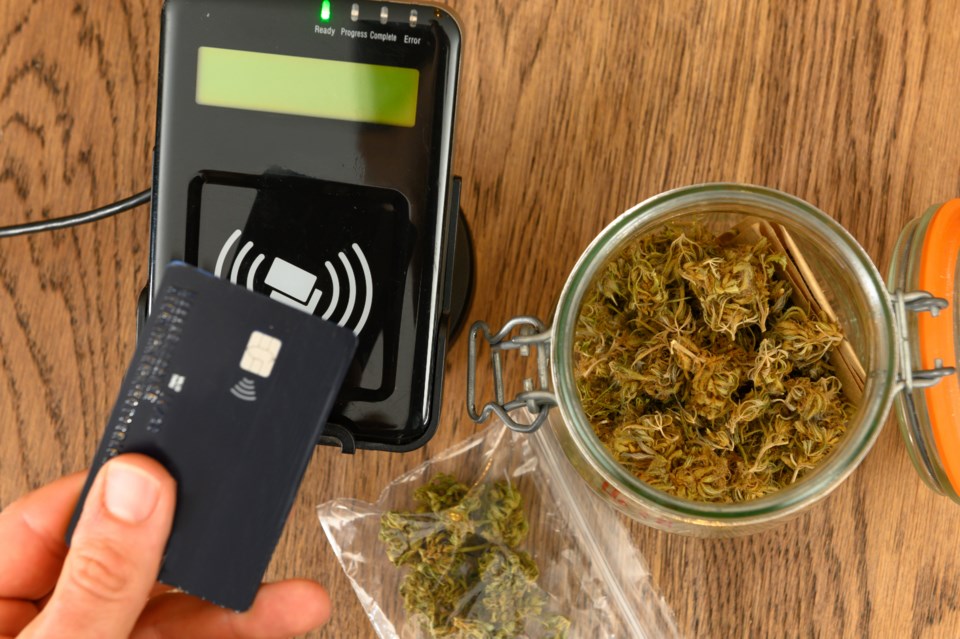It’s taken more than three years, but the Resort Municipality of Whistler (RMOW) is finally getting ready for brick-and-mortar cannabis stores in the resort.
We learned earlier this month that staff and council are looking at mid- to late 2022 (pending local and provincial approval processes) for the storefronts to open, and along the way there will be plenty of community discussion about what that might look like. The municipality has discretion about where and how many shops will dot the resort, with staff proposing to allow one cannabis retail location each in Function Junction and Creekside, and two locations in Whistler Village. Nesters Plaza may also be considered.
With close to 3 million visitors a year to the resort (pre-pandemic), it’s no surprise there is lots of interest in opening a store here—the RMOW has fielded more than 200 expressions of interest since Canada legalized recreational weed three years ago.
The timing of the municipality’s decision to move ahead now is interesting given that, as part of a process started in 2018, a statutory review of the Cannabis Act began in October 2021. And while there appears to be some wins—legalization has apparently helped keep weed out of the hands of youth—the Cannabis Council Of Canada (C3) generally sees much room for improvement on the retail front.
“We can’t get too excited in a circumstance where the illicit market remains with at least 50 per cent of the business,” George Smitherman, the president and CEO of C3, told the CBC.
“If the illicit market is still selling billions of dollars of cannabis, that’s a lot of tax revenue that governments aren’t getting.”
Statistics Canada data suggests retail sales in 2020 were just over $2.6 billion, which represented a 120-per-cent increase compared to 2019. That same report found that 41 per cent reported legal storefront as their usual source, an increase from 24 per cent in 2019, but that means that up to 59 per cent are still buying from illegal sources (some may be growing their own).
Part of the reason behind that is due to municipalities that have banned legal weed entirely, opening the door further to the black market.
“Just because you blocked out retail from your city doesn’t mean that cannabis isn’t being sold there,” Deepak Anand, chief executive of cannabis company Materia Ventures, told the Canadian Press this week.
“You’re basically, as city councillors or municipal governments, choosing to further enable the illicit market.”
We don’t have any way to know exactly what the situation is here in Whistler, but logic would lead you to understand that this is almost certainly happening here.
Along with the supply-and-demand conversation set to take place here in the coming months, there will no doubt be discussion about how supplying weed at retail locations melds with our vibe, our outdoor culture and our community.
Many would argue that that countercultural, pot-friendly dynamic is Whistler. I am not so sure anymore. I feel like the resort has grown up in the last two decades and perhaps shed its rebellious, teenage angst in favour of a focus on an adventure-seeking lifestyle, when fun is still front and centre, but respect is part of the equation, too. That respect will need to be practised as we welcome weed to the Village Stroll.
If Whistler is going to open up cannabis storefronts, part of the business strategy has to include our tourism sector—this also has to be part of the community conversation.
After all, a 2020 report found that 29 per cent of all active leisure travellers want to do cannabis-related activities on vacation, and 25 per cent of respondents travelled to a destination for a cannabis experience, including 44 per cent of Millennials and members of Generation Z.
I would argue that cannabis retail needs to be viewed, from a tourism point of view, as closer to the wine industry than tobacco—which is kind of the focus around regulation currently.
Perhaps in the future, Whistler might host a festival where guests enjoy seminars about the variety of cannabis available, perhaps they would visit a farm where it is produced as they would a vineyard, perhaps eateries will prepare food or cocktails with different cannabis strains? (Maybe one of the chemists could work on making that second-hand smoke smell better!)
Could this represent an opportunity? I think so, and it’s not just about people coming here to get high—they can do that anywhere. It’s about an added value to the guest, about creating a unique offering to draw them here.
In the space of three years, adult-use and medical cannabis’ contribution to Canada’s gross domestic product for the year ending July 2021 has grown to $17 billion. Compared to alcohol, Canadian cannabis sales have or will soon surpass the yearly retail sales of wine ($8 billion) and beer ($9.3 billion).
So while the conversation in the short term might be about where to put cannabis stores, the long-term conversation for Whistler must be about how to do what we do best: take the ordinary and make it extraordinary.





